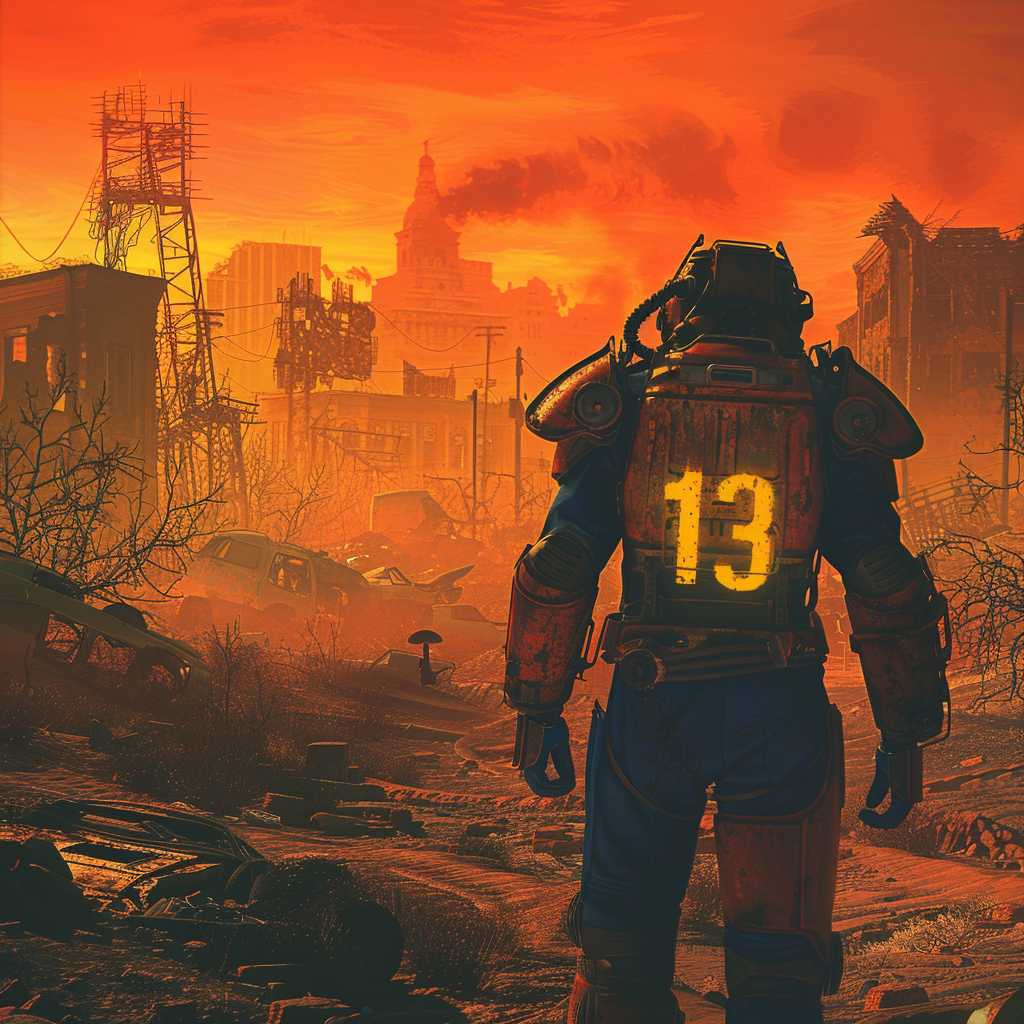The Enduring Legacy of the Fallout Video Game Series
Since its inception in the late 1990s, the Fallout video game series has impacted popular culture with its unique blend of post-apocalyptic storytelling, retro-futuristic aesthetics, and role-playing mechanisms. This article delves into the creation of Fallout, its evolution, thematic content, impact on the gaming industry, and cultural relevance.
Origins and Evolvement of the Fallout Franchise
The original Fallout game was developed by Interplay Entertainment and released in 1997. It introduced players to an alternate history where, after World War II, technology advanced along the line of atomic energy rather than silicon-based electronics, leading to a unique cultural and technological landscape by the late 20th century.
Fallout’s setting was a post-apocalyptic United States, ravaged by nuclear war in the year 2077, and the gameplay combined elements of traditional tabletop role-playing games with the requirements of an advanced computer RPG. The early games in the series were known for their open-world exploration, branching narratives impacted by players’ choices, and turn-based combat.
Following games in the series, including “Fallout 2,” maintained these core gameplay elements while expanding on the lore of the world. The jump to 3D would come with “Fallout 3”, developed by Bethesda Game Studios after they acquired the rights from an embattled Interplay. This shift brought about notable changes in design philosophy, gameplay mechanics—especially a shift to real-time combat—and presentation.
With subsequent releases like “Fallout: New Vegas” created by Obsidian Entertainment and “Fallout 4,” the franchise diversified further, each title introducing a variety of advancements in graphics, AI, and gaming mechanics like crafting systems and more dynamic interactions with non-playable characters (NPCs). A notable divergence from prior narrative-heavy RPG outings was “Fallout 76,” which experimented with being an exclusively online multiplayer experience and experienced a polarizing reception at its launch.
As graphics technology and gaming platforms evolved, so did the Fallout series, consistently factoring in fans’ feedback for continuing iterations.
Thematic Exploration in Fallout Games
Each game in the Fallout series explores various themes related to survival, human nature, society’s rebuilding efforts after collapse, and ethical dilemmas resulting from pre-war technologies. Through quests and storylines, players encounter factions with competing ideologies about governance, morality, and resource distribution—all set against a background exploring what humanity’s choices say about its values when pushed to extreme conditions.
The unique aesthetic of Fallout — grounded in the ‘Atom Punk’ genre — acts in counterpoint to its subject matter, creating a sardonic world where bright colors and optimism of ’50s Americana exist alongside brutal environments.
Furthermore, many players appreciate how the series critiques historical society trends such as consumerism and militarism while discussing issues like environmental preservation and nuclear disarmament — relevant topics given contemporary geopolitical tensions.
Impact on Gaming Industry
Fallout has had a significant impact on popular concepts within video game development. It’s widely regarded as pioneering open-world game design and has influenced countless other franchises in pursuing sandbox-style environments that prioritize player freedom. It elevated the importance of branching narratives depending on player decision-making within an intricate moral fabric that doesn’t fall into clear-cut definitions of good or evil.
This has fostered a deeper understanding amongst gamers on narrative dynamism — guiding other developers towards creating richly textured worlds with complex characters that resonate with audiences.
Cultural Relevance of Fallout
The cultural impact of Fallout is evident across various media; fan art, literature inspired by its universe, references within other games and pop culture at large are testimonies to its wide influence. It has become part of a broader fascination with dystopian contexts that offer both cautionary tales about future paths while examining resilience and adaptability — resonant concepts in society grappling with rapid technological change and existential risks.
The iconography of Fallout — the blue Vault jumpsuits, Pip-Boy device, and mascot Vault Boy — has become emblematic within gaming communities but has transcended into broader youth culture.
Notes
Image description: Imagine stepping into a vast barren wasteland with crumbling buildings silhouetted against an orange-tinted sky. In the foreground stands a character wearing a weathered blue jumpsuit with a yellow number ’13’ printed on the back; they’re looking at their wrist-mounted Pip-Boy device glowing faintly in dim light as if plotting a course through this desolate new world—an iconic scene representative of playing Fallout.
